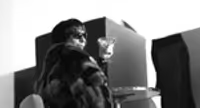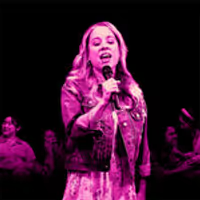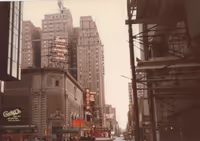Sondheim and Ives' HERE WE ARE at The Shed
#1425Here We Are
Posted: 12/18/23 at 8:13pm
dramamama611 said: "I don't think it's patience we need just confirmation that either it has been recorded or is scheduled to be so. One actor saying it back in October isn't very confidence instilling. I'll can wait for an album, I just want to know it's actually coming. Right now I'm thrilled to be going to see it in the New Year."
What you’re describing is literally patience.
#1426Here We Are
Posted: 12/18/23 at 8:53pm
The ROAD SHOW cast recording was recorded after the production had closed. I wouldn't be surprised if it's the same case here.
MezzA101
Broadway Legend Joined: 3/29/23
#1427Here We Are
Posted: 12/26/23 at 7:58am
NYTimes: Sondheim Was a Critical Darling. Since His Death, He’s a Hitmaker, Too.
https://www.nytimes.com/2023/12/26/theater/stephen-sondheim-broadway-box-office.html?unlocked_article_code=1.I00.KdRF.8Z4c53Fl9ntf&smid=nytcore-android-share
“Here We Are” is a little different. It is not expected to recoup its costs, or to transfer to Broadway, but both the leadership of the Shed and the commercial producer who raised money to finance the production proclaimed it a success.
“It was always about honoring Steve’s legacy,” said the producer, Tom Kirdahy. “And we hope that it has another life, in London or on the road.”
Wayman_Wong
Broadway Legend Joined: 4/22/04
#1428Here We Are
Posted: 12/26/23 at 12:26pm
Here he is: Ives on working with Sondheim on 'Here We Are'
https://observer.com/2023/12/david-ives-on-collaborating-with-sondheim-on-his-final-work-here-we-are/
#1429Here We Are
Posted: 12/26/23 at 12:40pm
This needs to come to broadway at some point. i'm not giving up hope
StylishCynic
Stand-by Joined: 7/5/16
#1430Here We Are
Posted: 12/26/23 at 12:48pm
Broadway Flash said: "This needs to come to broadway at some point. i'm not giving up hope"
In all earnest, why?
The current run is a first-class production with a tremendously talented cast and creative team and playing in New York City. Based on today's NYT reporting, it sounds like the Off-Broadway run will have lost its investors a little money by the end of the production. Reporting confirms that creative team is expressively disinterested in awards for this production.
A better sendoff for this production would be a filmed release for Fathom events that would eventually move to a streamer.
#1431Here We Are
Posted: 12/26/23 at 12:56pm
how many seats are there for this production at the shed?
bear88
Broadway Legend Joined: 4/26/16
#1432Here We Are
Posted: 12/26/23 at 1:29pm
StylishCynic said: "The current run is a first-class production with a tremendously talented cast and creative team and playing in New York City. Based on today's NYT reporting, it sounds like the Off-Broadway run will have lost its investors a little money by the end of the production. Reporting confirms that creative team is expressively disinterested in awards for this production.
A better sendoff for this production would be a filmed release for Fathom events that would eventually move to a streamer."
My unrealistic wish for Here We Are is a filmed production. Sondheim’s shows have benefited a great deal over the years from being filmed, especially original cast productions. There’s a lavish, well-staged production at The Shed right now with an impressive cast that even includes some reasonably big names. It’s a show that would benefit enormously and be more comprehensible if people can see it. I will be happy enough with a cast recording, because I can fill in the missing visuals, but that won’t help the many people who won’t get a chance to see it.
I assume a filmed production is not happening, though.
#1433Here We Are
Posted: 12/26/23 at 2:35pm
I JUST WANT A RECORDING. (Yes, I know multiple folks have state it's happening, but we've gotten no official word - that Im aware of, anyway.)
StylishCynic
Stand-by Joined: 7/5/16
#1434Here We Are
Posted: 12/26/23 at 3:02pm
bear88 said: "StylishCynic said: "The current run is a first-class production with a tremendously talented cast and creative team and playing in New York City. Based on today's NYT reporting, it sounds like the Off-Broadway run will have lost its investors a little money by the end of the production. Reporting confirms that creative team is expressively disinterested in awards for this production.
A better sendoff for this production would be a filmed release for Fathom events that would eventually move to a streamer."
My unrealistic wish forHere We Areis a filmed production. Sondheim’s shows have benefited a great deal over the years from being filmed, especially original cast productions. There’s a lavish, well-staged production at The Shed right now with an impressive cast that even includes some reasonably big names. It’s a show that would benefit enormously and be more comprehensible if people can see it. I will be happy enough with a cast recording, because I can fill in the missing visuals, but that won’t help the many people who won’t get a chance to see it.
I assume a filmed production is not happening, though.
"
I agree –this is a show that's as much visual as it is audio, and there's always going to be a puzzle piece missing from just listening to a recording. (Although, this is much of Sondheim's library –Whistle and Overtures come to mind especially!)
An Off-Broadway production has the best odds of being filmed, however, as they're not beholden to the Broadway unions, so unlike most shows I'd say that this has a statistically likelier probability of actually being filmed for posterity.
Any news of a recording (audio or visual) likely won't come until the final days of the run, or soon after the run concludes. The reason being is that there's likely many ticket buyers who wouldn't buy a ticket knowing that they'll be able to listen to Sondheim's final music or view the entire show that will be motivated to do so because of FOMO in the final weeks.
That's just smart marketing.
#1435Here We Are
Posted: 12/26/23 at 4:04pm
Sounds like they want to do take it beyond off Broadway so not sure filming it would help them. Especially if they plan like a big city tour or something. It was def a special experience.
bear88
Broadway Legend Joined: 4/26/16
#1436Here We Are
Posted: 1/2/24 at 12:25am
Given the surreal nature of the source material, it is perhaps a fool's errand to ask too many questions about plot and character developments in Here We Are, and some things seem left to the audience's imagination or are open to interpretation. I couldn't figure out a way to address these queries without spoiling the plot. So here goes (under spoiler tags):
-- What does Marianne remember to do? I don't think I missed something, and please point it out if it's obvious, but I didn't think it was meant to be obvious. The question is why not. Bookwriter David Ives introduces a minor mystery that seems not to matter all that much (what the seemingly emptyheaded Marianne intended to do) that takes on greater weight when she announces in her monologue at the end of the show that she "just did it." By this time, Marianne has become the show's central character, and its most sympathetic one. Is she going "off-script," not playing her designated role in the play? Does it not matter what it was, that it's just that she did something for herself? Did Ives write himself into a corner?
-- Where does "Inferno" go at the end? What does it mean? Denis O'Hare's character in the second act, the butler who is actually a revolutionary trapped with everyone else, vanishes at the end. Everyone else either departs "normally" or is back looking for brunch. But "Inferno" just quietly exits the stage. I saw someone on Reddit comment that he appears to walk over something at the side of the stage, but I didn't notice this. What happens to him? His character was in many ways the most problematic in the second act for me, as he seems easily defeated by the rich folks and just seems rather pathetic, but is there more to it than that? (O'Hare, in a radio interview, says he knows what happens to his character but doesn't reveal it.) As there isn't a direct analogue between his character and those of either of Luis Bunuel's films, there doesn't seem to be an obvious answer.
-- What happens to the main characters at the end? The conclusion is similar to that of The Extrerminating Angel, suggesting that they're trapped again. But the second act isn't nearly as dark as the film. It felt like the ending was up to the viewer's interpretation. It's possible that I missed a hint because I was sitting in the side seats, so I didn't catch the actors' facial expressions as they ran forward before the blackout.
-- This is less a question than an observation: David Hyde Pierce's bishop is perhaps the biggest departure from the comparable character in The Discreet Charm of the Bourgeoisie. In the film, the seemingly harmless bishop shoots and kills a dying man without hesitation after learning the man killed his parents. Pierce’s bishop is not a murderer; he's a charming man going through a spiritual crisis that's resolved happily by the end of the show. My conclusion is that Ives' attitude toward organized religion is a lot less hostile than Luis Bunuel's. Or, like much of the rest of the show, it's not nearly as dark as it could have been. Ives, and Sondheim (whatever his contribution remained in the final product), pulled their punches a bit. It didn't detract from my enjoyment of the show, as Ives (along with director Joe Mantello and, whatever his role before his death, Sondheim) aimed for a satire a lot lighter than the original films, and especially The Exterminating Angel. It was less unsettling than the original films, for better and for worse.
.
Updated On: 1/2/24 at 12:25 AM#1437Here We Are
Posted: 1/2/24 at 5:06am
"An Off-Broadway production has the best odds of being filmed, however, as they're not beholden to the Broadway unions, so unlike most shows I'd say that this has a statistically likelier probability of actually being filmed for posterity."
My understanding: Equity is not a "Broadway" union, but a professional stage union. Those actors are all Equity, so there are still ties even if the Shed isnt an Equity house. If they film simply for posterity (Lincoln Center Archives), there is no problem as that is nearly always done for Broadway. All filming still needs union intervention.
rattleNwoolypenguin
Broadway Legend Joined: 10/11/11
#1438Here We Are
Posted: 1/2/24 at 10:51am
I thought the point of Marianne's thing she forgot is her life is so charmed she doesn't really have many tasks. It's clearly not pressing. It was just something on her list that is ultimately meaningless.
StylishCynic
Stand-by Joined: 7/5/16
#1439Here We Are
Posted: 1/2/24 at 12:10pm
bear88 said: "Given the surreal nature of the source material, it is perhaps a fool's errand to ask too many questions about plot and character developments inHere We Are, and some things seem left to the audience's imagination or are open to interpretation. I couldn't figure out a way to address these queries without spoiling the plot. So here goes (under spoiler tags):
-- What happens to the main characters at the end?
."
My thoughts:
-- What does Marianne remember to do?
-- I'm fairly sure that at the end, I heard Marianne say that she "just didn't [tell anyone what it was she was supposed to do]". This could easily be misunderstood as "just did it." We need the published script to confirm.
--If she did indeed say that she "did it," then it's my understanding that whatever it was... when it happened, it wasn't shown. The sequences In The Room cut around the amount of time. It either happened in between scenes that we are shown, or it happened when they were freed and everyone's phone began working again.
-- What happens to the main characters at the end?
--I thought that the Revolution found them? In other words, we see that our protagonists escaped one pickle only to fall into another.
-- re: Character changes
--There's not too much to read into here. It's clear that the HWA protagonists are only loosely inspired by the Buñuel characters and this creative team impressed their own personalities onto the archetypes. An example is how the two lovers commit suicide in the closet in the film. Sondheim / Ives make an excellent joke of this and instead found more value to the show in preserving all of their characters.
--We also know from the @SondheimLetters instagram that in one iteration (maybe circa 2017) of the show, they removed the "Priest / Gardener" entirely because they found that "he was the unnecessary member of the group." This decision was evidently reversed.
cmorrow
Stand-by Joined: 10/25/12
#1440Here We Are
Posted: 1/2/24 at 2:27pm
dramamama611 said: ""An Off-Broadway production has the best odds of being filmed, however, as they're not beholden to the Broadway unions, so unlike most shows I'd say that this has a statistically likelier probability of actually being filmed for posterity."
My understanding: Equity is not a "Broadway" union, but a professional stage union. Those actors are all Equity, so there are still ties even if the Shed isnt an Equity house. If they film simply for posterity (Lincoln Center Archives), there is no problem as that is nearly always done for Broadway. All filming still needs union intervention."
I work at the Performing Arts Library, at Lincoln Center. It's a common misconception that "nearly all" Broadway shows are taped. While the total varies from year to year, the percentage of Broadway shows which are recorded for the Theatre on Film and Tape Archive (TOFT) hovers around 65 to 75%. That's a lot, but there are still plenty of shows which are not captured on video. A majority of TOFT's videos are Off-Broadway or Off-off. And yes, the backstage guilds and unions are certainly involved in granting permissions for those tapings, whatever the venue.
For what it's worth, Here We Are was videorecorded for TOFT on December 14. It was a multi-camera shoot, featuring all the principal players.
#1441Here We Are
Posted: 1/2/24 at 2:52pm
If anyone is catching the show over the next couple of weeks, would someone mind asking the merch people if they may sell out by the end of the run? I am going to closing and last time I went to a closing, most of the merch was sold out or selling out. And that was the Sunday in the Park revival… I know this is a different show, but so I thought about the former! Haha.
StylishCynic
Stand-by Joined: 7/5/16
#1442Here We Are
Posted: 1/2/24 at 3:18pm
jacobsnchz14 said: "If anyone is catching the show over the next couple of weeks, would someone mind asking the merch people if they may sell out by the end of the run? I am going to closing and last time I went to a closing, most of the merch was sold out or selling out. And that was the Sunday in the Park revival… I know this is a different show, but so I thought about the former! Haha."
The website still has all merch available and offers free shipping on orders $50+.
https://www.broadwaymerchandiseshop.com/collections/here-we-are
#1443Here We Are
Posted: 1/2/24 at 6:04pm
dramamama611 said: "I JUST WANT A RECORDING. (Yes, I know multiple folks have state it's happening, but we've gotten no official word - thatIm aware of, anyway.)"
It is 100% being recorded. I know this for a 100% fact. The recording date is already scheduled. It is happening.
CityofStrangers
Swing Joined: 11/23/23
#1444Here We Are
Posted: 1/2/24 at 10:06pm
I'm eager to see how the cast album will be organized; the songs in the first act weave in and out of dialogue so carefully. I hope they have the instrumental pieces in the second act included. I'm seeing it for the second time on the 20th, and I am excited to pick up on stuff I missed.
bear88
Broadway Legend Joined: 4/26/16
#1445Here We Are
Posted: 1/3/24 at 4:04am
StylishCynic said: "bear88 said: "Given the surreal nature of the source material, it is perhaps a fool's errand to ask too many questions about plot and character developments inHere We Are, and some things seem left to the audience's imagination or are open to interpretation. I couldn't figure out a way to address these queries without spoiling the plot. So here goes (under spoiler tags):
-- What happens to the main characters at the end?
."
My thoughts:
-- I'm fairly sure that at the end, I heard Marianne say that she "just didn't [tell anyone what it was she was supposed to do]". This could easily be misunderstood as "just did it." We need the published script to confirm.
--If she did indeed say that she "did it," then it's my understanding that whatever it was... when it happened, it wasn't shown. The sequences In The Room cut around the amount of time. It either happened in between scenes that we are shown, or it happened when they were freed and everyone's phone began working again.
-- What happens to the main characters at the end?
--I thought that the Revolution found them? In other words, we see that our protagonists escaped one pickle only to fall into another.
-- re: Character changes
--There's not too much to read into here. It's clear that the HWA protagonists are only loosely inspired by the Buñuel characters and this creative team impressed their own personalities onto the archetypes. An example is how the two lovers commit suicide in the closet in the film. Sondheim / Ives make an excellent joke of this and instead found more value to the show in preserving all of their characters.
--We also know from the @SondheimLetters instagram that in one iteration (maybe circa 2017) of the show, they removed the "Priest / Gardener" entirely because they found that "he was the unnecessary member of the group." This decision was evidently reversed.
Re Marianne:
As you wrote, Marianne said in her closing monologue she didn’t tell anyone what she was supposed to do, once she remembered, then added: ‘She just did it.’
I agree that we, the audience, didn’t see whatever it was - and I doubt it was anything profound. But Ives included Marianne’s attempts to remember what she was supposed to do and her final statement that she just did it - which I interpreted not as something she did a few minutes before but as something she did during her time in the room - for a reason. I’m not sure what that might be, though. She seems to get the most out of having been there, even though her life hasn’t changed. It feels like there’s a meta explanation that I might not have grasped.
As for the ending, it seems open to interpretation. I suppose the Revolution could be waiting for them, but the second act didn’t really lead me to that conclusion. The ominous noises and blackout suggest something a little different.
It’s interesting that the bishop was initially written out, if only because his character - who turns up just before the end of the first act, plays such a pivotal role in the second act. The surprisingly sweet tone is set by Rachel Bay Jones’ Marianne and her conversation with David Hyde Pierce’s bishop, and then their parting. That caught me off guard, because it played with my expectations (set during the first act) of a dark satire. Turning the young couple’s suicide from the film into a joke was both funny and consistent with Ives/Sondheim/Mantello’s complication of the source material. I am still not sure, weeks after seeing the show, if it all worked - but it kept me guessing and was very entertaining.
Kubricube
Swing Joined: 1/3/24
#1446Here We Are
Posted: 1/3/24 at 5:20am
Quick question,
Can anyone who saw it confirm if Fritz actually leaves the house at the end, or does she stop at the door and turn back?
cmorrow
Stand-by Joined: 10/25/12
#1447Here We Are
Posted: 1/3/24 at 12:11pm
Kubricube said: "Quick question,
Can anyone who saw it confirm if Fritz actually leaves the house at the end, or does she stop at the door and turn back?"
At the end, after her speech about straightening out her life, Fritz briefly leaves the stage. But then she reconsiders and jumps back on stage with the others. She takes part in the final choreographed bit, when the main characters split into pairs, rejoin, then rush at the audience.
CityofStrangers
Swing Joined: 11/23/23
#1448Here We Are
Posted: 1/3/24 at 4:58pm
Something that has been bugging me since I saw it (Potential spoiler but Idk how to do the hide text thing lol):
When they stay the first night, Inferno leaves the room with the dishes but returns when everyone is stuck the next morning. What is that about? When I first watched it, I thought that would be the moment they realized they were trapped. A few people on Reddit were discussing it, and I thought I'd check here.
Kubricube
Swing Joined: 1/3/24
#1449Here We Are
Posted: 1/3/24 at 8:15pm
cmorrow said: "Kubricube said: "Quick question,
Can anyone who saw it confirm if Fritz actually leaves the house at the end, or does she stop at the door and turn back?"
At the end, after her speech about straightening out her life, Fritz briefly leaves the stage. But then she reconsiders and jumps back on stage with the others. She takes part in the final choreographed bit, when the main characters split into pairs, rejoin, then rush at the audience."
Thanks for the response, but this isn't what I was getting at. I saw the show, and I know Fritz's main entrance and "exit" at the top and tail of the show is through a house door on stage left. I wasn't paying attention to what Fritz was doing at the end since I was focused on the action on the stage. I was wondering if Fritz left the space entirely or if she made her way back to the stage because she felt she couldn't leave the house.
Videos








